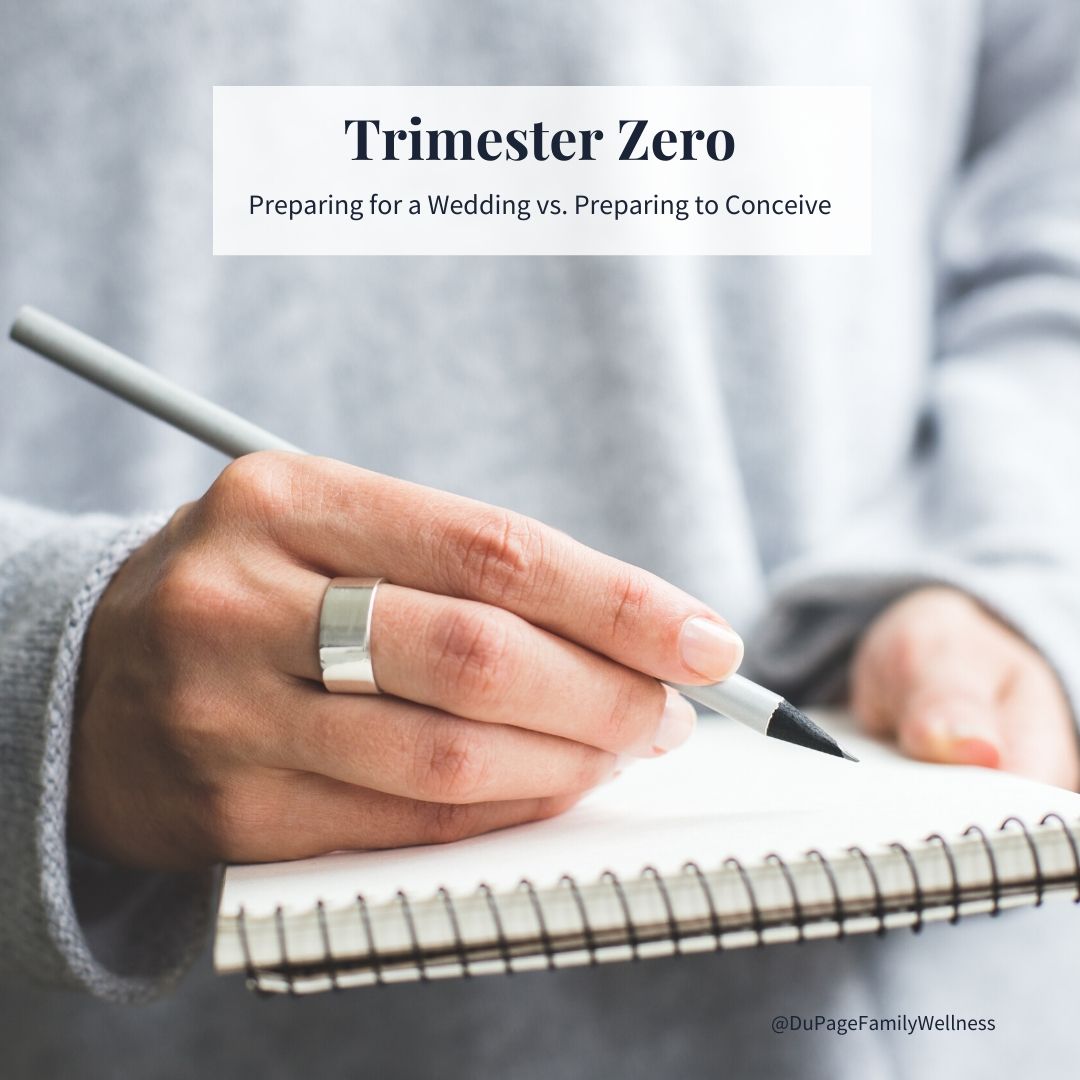 What if we spent just as long preparing to get pregnant as we do preparing to get married?
What if we spent just as long preparing to get pregnant as we do preparing to get married?
Preparing for a Wedding vs. Preparing for Pregnancy
Couples know that preparing a beautiful wedding takes work. Many people take 12-18 months working on the details for this one day. They know it takes a plan. It doesn’t just fall together, unless perhaps they simply elope.
Yet when a couple decides to try to have a baby, they often jump right in without preparing themselves or their bodies. Our society doesn’t understand that there are many things a couple can do to prepare themselves for a healthy pregnancy. It’s like we think everyone can do the equivalent of eloping in this area.
When Pregnancy Doesn't Happen Quickly
When a couple does not achieve pregnancy quickly, they are often told that it just takes time and to keep trying.
Although this is intended to be encouraging, this isn’t an empowering message. I would rather offer the couple a clear plan towards health, helping them see this as a time of preparation instead of just waiting.
Focusing on helping the couple achieve ultimate health increases their chances of a healthy pregnancy and a radiantly healthy baby.
How Long to Focus on Preconception Health
Did you know that the egg takes about 120 days to mature from a follicle to an egg? And that sperm matures in about 60 days?
Since the health of the egg and the sperm are vital to the health of the baby, it is important to focus on being as healthy as possible for at least that long before trying to conceive.
Read more ...
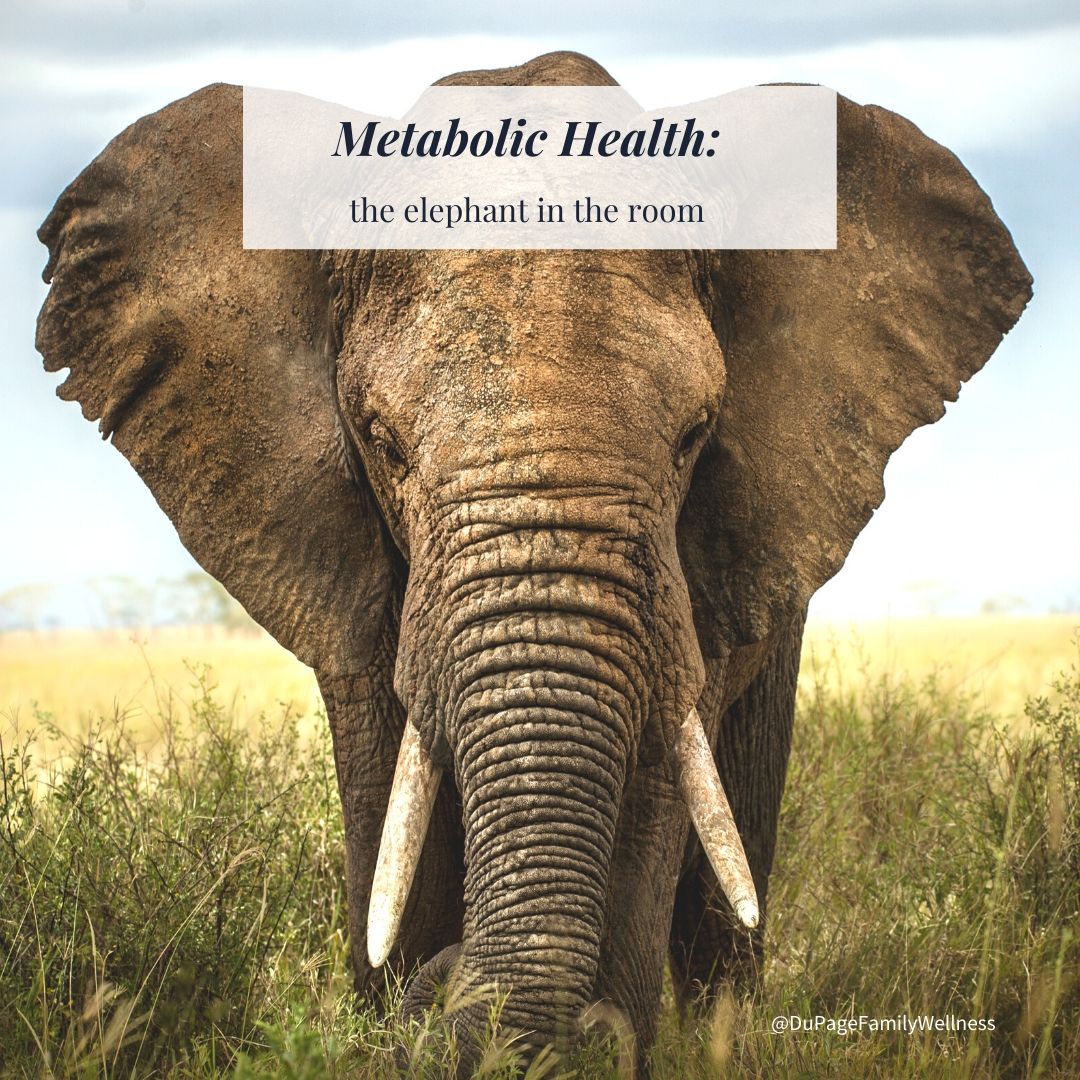 With all that is going on in our world today, everyone wants to be healthy. People want to boost their immune system, so their bodies will be resilient and strong.
With all that is going on in our world today, everyone wants to be healthy. People want to boost their immune system, so their bodies will be resilient and strong.
Many people consider themselves healthy since they are active and in a normal weight range. But research is showing that it is possible even for thin people to be quite unhealthy. It’s like they are thin on the outside, but fat on the inside.
So what does it mean to truly be healthy? How do we measure our health objectively? And what can we do to improve our health?
Recently, I listened to one of my favorite podcasts The Doctor’s Farmacy. In it, Dr. Hyman was speaking with Dr. Aseem Malhotra on this very topic. Dr. Malhotra is a cardiologist, professor, author, and health advocate in the UK. They talked about Metabolic Health, how to measure it, why it matters, and the impact it has on public health.
Let’s take a brief look at this important subject and how you can use this knowledge on your journey to wellness!
Read more ...
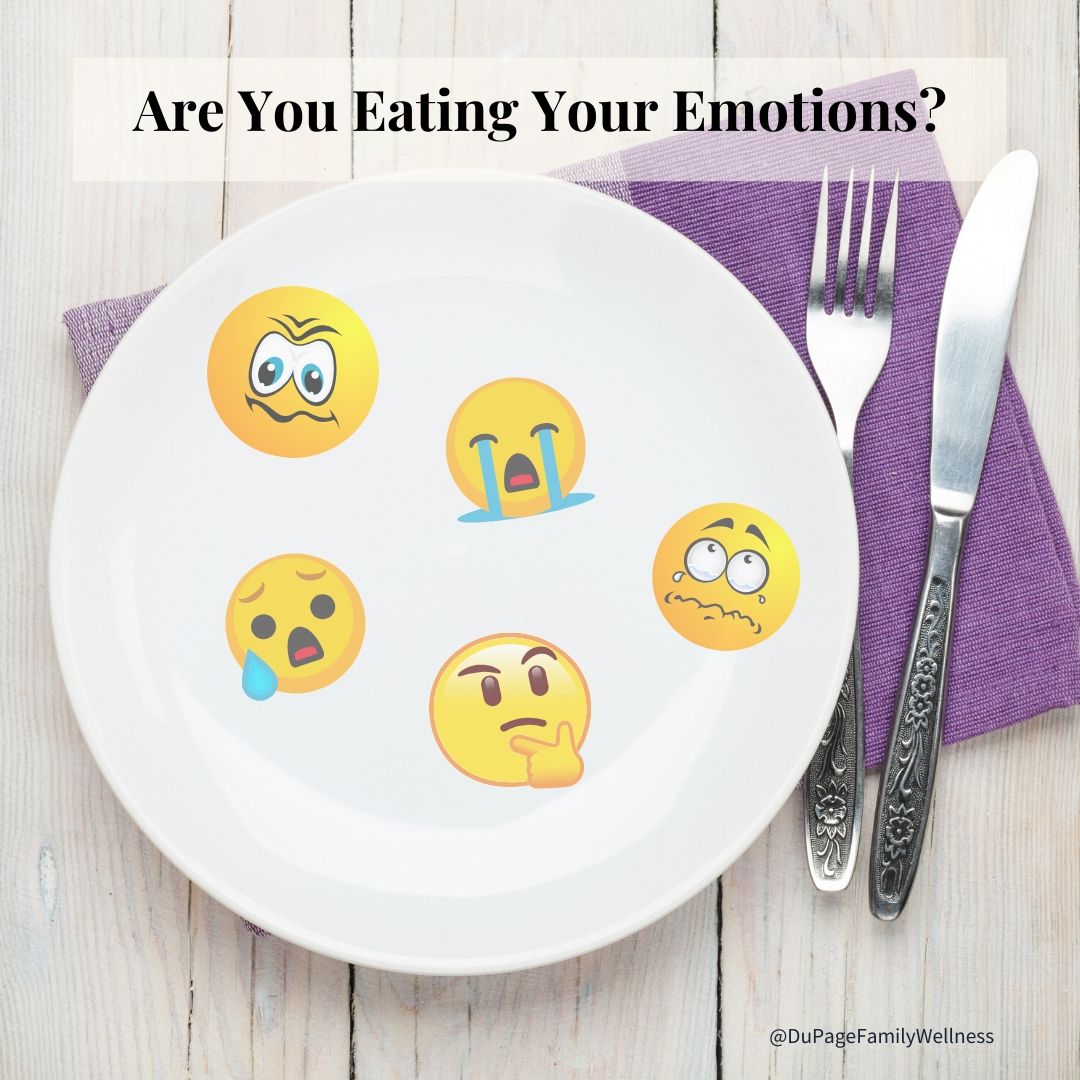 The state of our world has brought stress levels to an all time high. Illinois shelter in place orders were issued over 8 weeks ago, and our routines have been significantly impacted. As a result many people are dealing with more loneliness, boredom, and depression than they ever have before.
The state of our world has brought stress levels to an all time high. Illinois shelter in place orders were issued over 8 weeks ago, and our routines have been significantly impacted. As a result many people are dealing with more loneliness, boredom, and depression than they ever have before.
When we are faced with challenging times and strong emotions, it can be easy to turn to food for comfort. Eating in these moments may be an attempt to meet emotional needs rather than physical ones. Let’s take a look at emotional eating and what we can do to deal with it in these extreme times!
What is Emotional Eating?
When we feel sad, anxious, lonely, or angry it can be tempting to reach for food. When we reach for food to fill an emotional need rather than a physical one, it is called emotional eating.
Emotional eating is an attempt to self-soothe and has a way of numbing our feelings temporarily. Not only are we distracted by the sweet or salty tastes, but it can affect the chemicals in our body. When we consume sugar our brain produces a surge of dopamine. Since dopamine is known as the feel good hormone in the body, it brings us temporary relief from difficult feelings.
While soothing ourselves this way may feel better in the moment, emotional eating isn't the best way to handle our emotions. It doesn’t effectively deal with the underlying emotions and often leads to regret. Emotional eating may also create unintended health consequences if we indulge in it often. There are many better ways to soothe ourselves, but we must first recognize when we are attempting to eat our emotions.
Building Awareness
Since we often emotionally eat without realizing what we are doing it will be important to cultivate self-awareness. By checking in with yourself and knowing the clues, you can determine whether you are truly hungry.
Read more ...
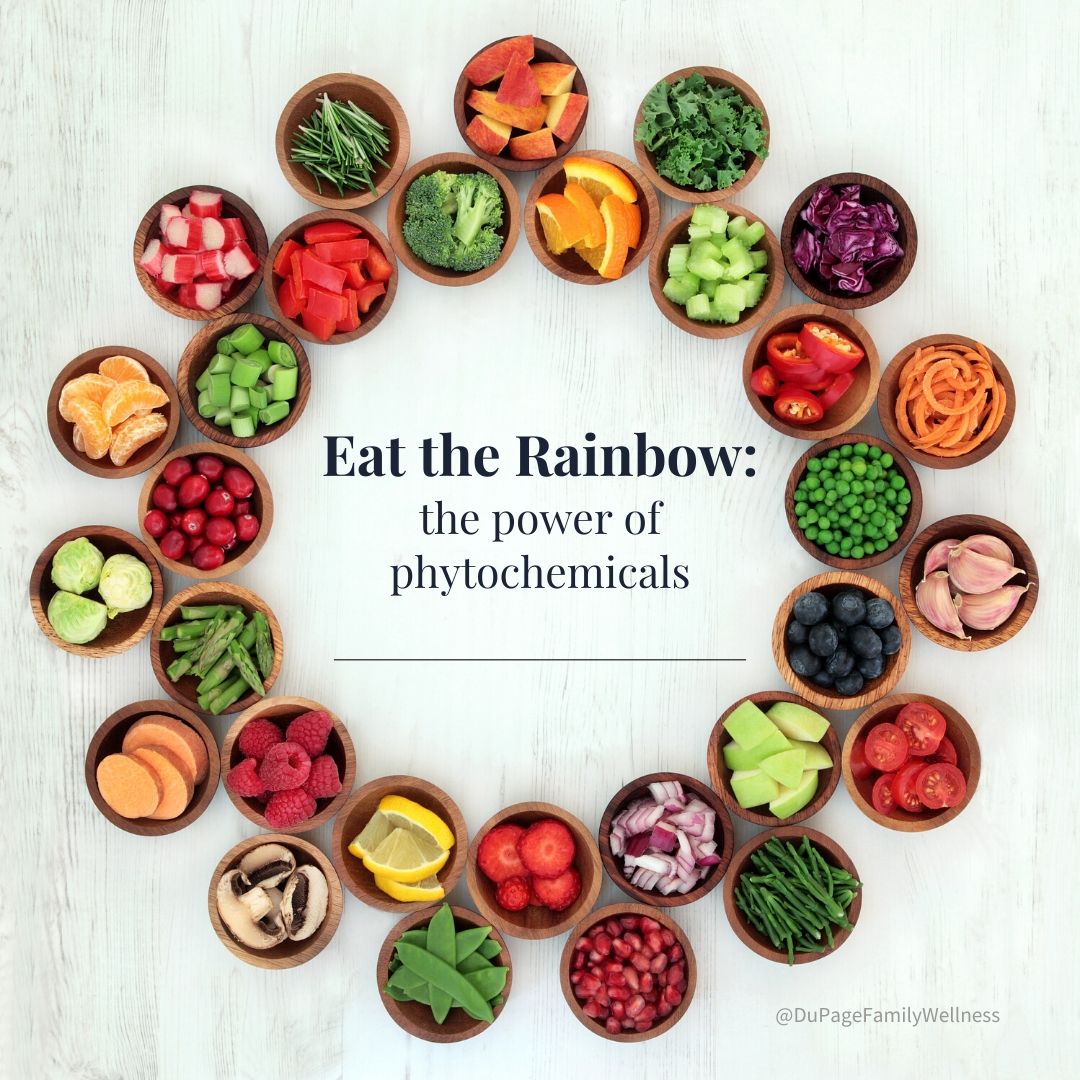 Most people know that vitamins and minerals support proper immune system function, but give little thought to the need for phytochemicals.
Most people know that vitamins and minerals support proper immune system function, but give little thought to the need for phytochemicals.
What are Phytochemicals?
Phytochemicals are naturally occurring compounds produced by plants. The beautiful colors of fruits and vegetables are derived from these chemicals, and they are known to have protective properties.
What do they do for the plant?
In addition to making the plants pretty, they have an important role in defending the plant against dangers. Phytochemicals act as the plants immune system protecting them from viruses, bacteria, fungi, and pests. Since plants can’t run away or go to the doctor's office, they need phytochemicals help them stay healthy.
What can do they do for us?
According to Dr. Jeffrey Bland, there are many health benefits for us when we consume the phytochemicals in these plants. Bland explains that "when eaten by humans, (phytochemicals) have effects upon immuno-rejuvenation". This goes beyond simply supporting your immune system, and actually helps your immune system heal so it can function more effectively.
So what can you do with this knowledge?
To begin with see how many colors of veggies you can get on your plate today!! Then the next time you shop, be sure to pick a large variety of colorful fruits and vegetables to enjoy. It is fun to challenge yourself to buy at least three brightly colored vegetables each time you go to the store. Make sure that some of them are ones that you have never tried before. You will get all the phytochemicals from these plants and may find a new favorite!
It is amazing how our nutrition impacts our body. Our choices can not only support our immune system, but assist with immuno-rejuvenation!
You can learn more by listening to Dr. Bland speak with Dr. Hyman about immuno rejuvenation in the Doctor's Farmacy Podcast episode 105.
Dr. Jamie
#8essentials #RealFood
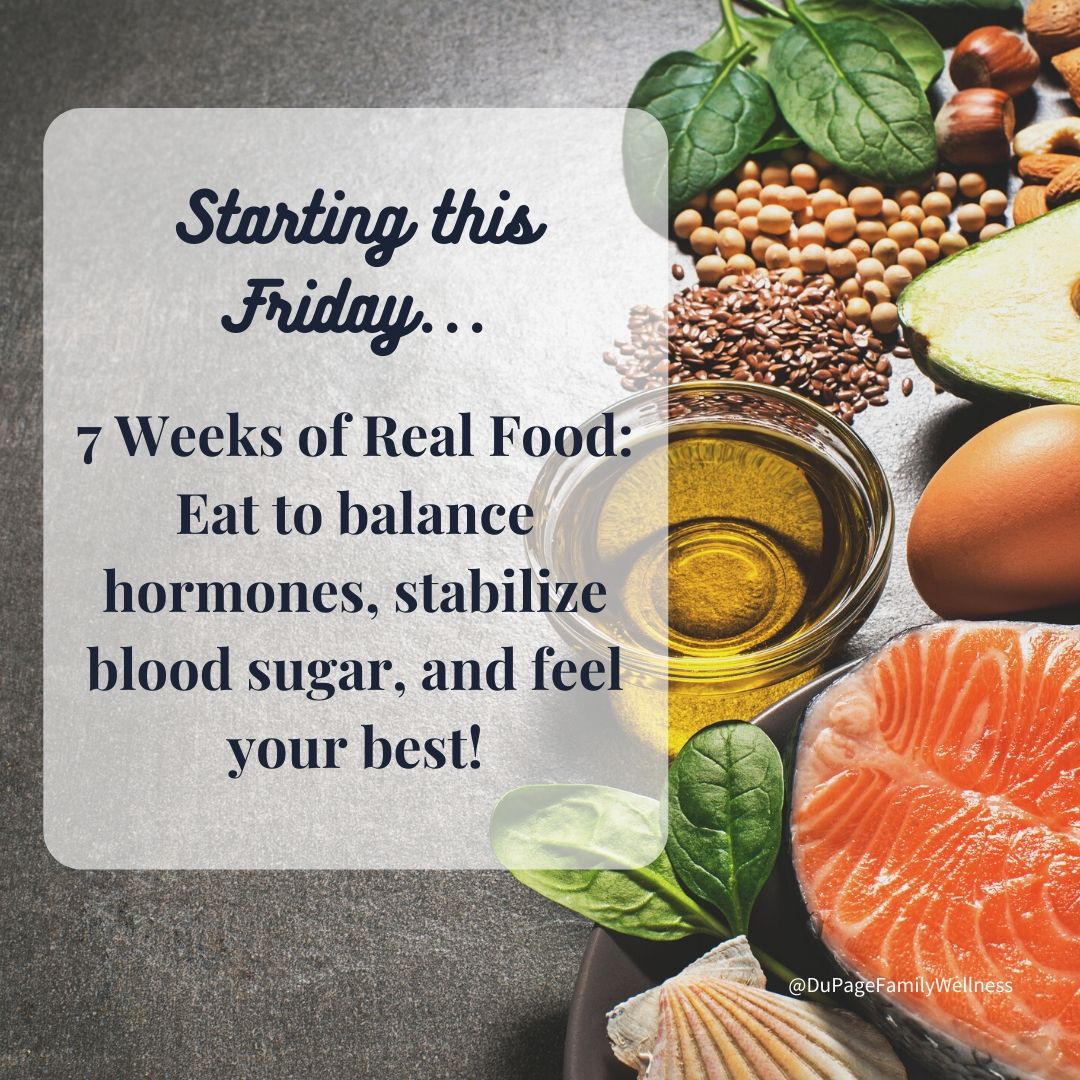 Are you ready to make some changes to start feeling great? Do you want to encourage your family to be healthy by setting a good example for them and teaching them life-long healthy habits? Are you thinking about becoming pregnant and want to prepare your body by giving it the most nutrient dense food possible?
Are you ready to make some changes to start feeling great? Do you want to encourage your family to be healthy by setting a good example for them and teaching them life-long healthy habits? Are you thinking about becoming pregnant and want to prepare your body by giving it the most nutrient dense food possible?
If so, Dr. Jamie’s program “7 Weeks of Real Food: Eat to balance hormones, stabilize blood sugar, and feel great!” is for you.
What to Expect
This online self-paced course is full of great information, sample meal plans, and shopping lists distributed through daily emails. It provides guidance on what foods to eat freely, what to limit, and what to avoid completely. All of the material will be given through DAILY emails. But you don’t have to make these changes on your own!
Participants are invited into a community of like-minded individuals who are on similar paths to healing. We will connect weekly through optional zoom calls and an exclusive Facebook group. The community is where we will support one another, ask questions, & exchange ideas.
Throughout this “7 Weeks of Real Food”, you will learn how to make LIFELONG changes to your diet so that you can improve your health and longevity. For less than $2/day, you can learn skills and form healthy habits that will help you to feel better for a lifetime!
Why Now?
Most people are experiencing increased levels of stress in their lives today! Since stress wreaks havoc on your system, now would be a great time to support it through proper nutrition.
Your gut impacts literally EVERYTHING in your body! Investing in gut health will make a huge impact in your body. Your cycle, hormones, gut, skin, brain, and immune system will thank you!
Read more ...
 What if we spent just as long preparing to get pregnant as we do preparing to get married?
What if we spent just as long preparing to get pregnant as we do preparing to get married?

 With all that is going on in our world today, everyone wants to be healthy. People want to boost their immune system, so their bodies will be resilient and strong.
With all that is going on in our world today, everyone wants to be healthy. People want to boost their immune system, so their bodies will be resilient and strong. The state of our world has brought stress levels to an all time high. Illinois shelter in place orders were issued over 8 weeks ago, and our routines have been significantly impacted. As a result many people are dealing with more loneliness, boredom, and depression than they ever have before.
The state of our world has brought stress levels to an all time high. Illinois shelter in place orders were issued over 8 weeks ago, and our routines have been significantly impacted. As a result many people are dealing with more loneliness, boredom, and depression than they ever have before.  Most people know that vitamins and minerals support proper immune system function, but give little thought to the need for phytochemicals.
Most people know that vitamins and minerals support proper immune system function, but give little thought to the need for phytochemicals. Are you ready to make some changes to start feeling great? Do you want to encourage your family to be healthy by setting a good example for them and teaching them life-long healthy habits? Are you thinking about becoming pregnant and want to prepare your body by giving it the most nutrient dense food possible?
Are you ready to make some changes to start feeling great? Do you want to encourage your family to be healthy by setting a good example for them and teaching them life-long healthy habits? Are you thinking about becoming pregnant and want to prepare your body by giving it the most nutrient dense food possible? 